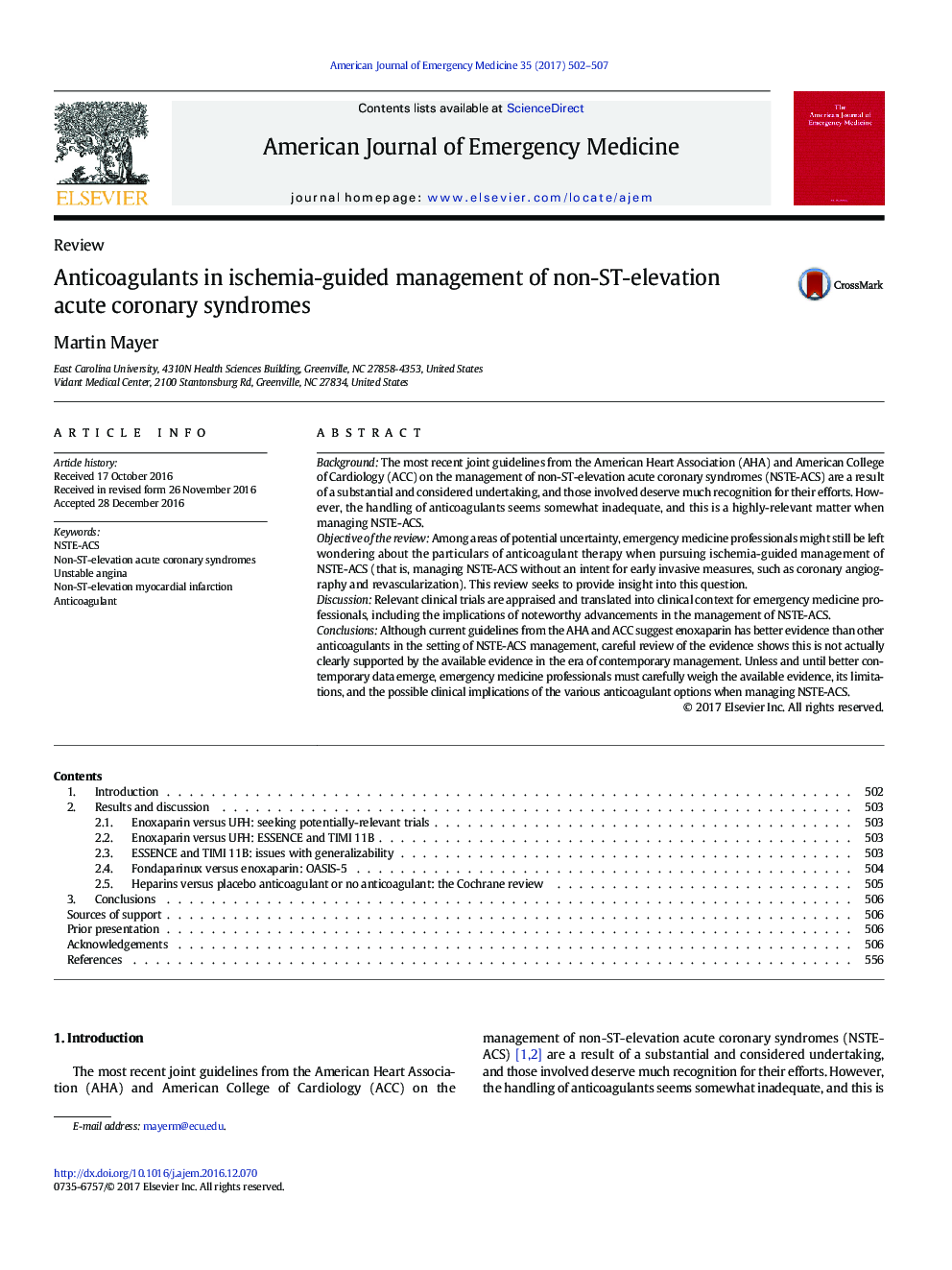| Article ID | Journal | Published Year | Pages | File Type |
|---|---|---|---|---|
| 5650974 | The American Journal of Emergency Medicine | 2017 | 6 Pages |
BackgroundThe most recent joint guidelines from the American Heart Association (AHA) and American College of Cardiology (ACC) on the management of non-ST-elevation acute coronary syndromes (NSTE-ACS) are a result of a substantial and considered undertaking, and those involved deserve much recognition for their efforts. However, the handling of anticoagulants seems somewhat inadequate, and this is a highly-relevant matter when managing NSTE-ACS.Objective of the reviewAmong areas of potential uncertainty, emergency medicine professionals might still be left wondering about the particulars of anticoagulant therapy when pursuing ischemia-guided management of NSTE-ACS (that is, managing NSTE-ACS without an intent for early invasive measures, such as coronary angiography and revascularization). This review seeks to provide insight into this question.DiscussionRelevant clinical trials are appraised and translated into clinical context for emergency medicine professionals, including the implications of noteworthy advancements in the management of NSTE-ACS.ConclusionsAlthough current guidelines from the AHA and ACC suggest enoxaparin has better evidence than other anticoagulants in the setting of NSTE-ACS management, careful review of the evidence shows this is not actually clearly supported by the available evidence in the era of contemporary management. Unless and until better contemporary data emerge, emergency medicine professionals must carefully weigh the available evidence, its limitations, and the possible clinical implications of the various anticoagulant options when managing NSTE-ACS.
